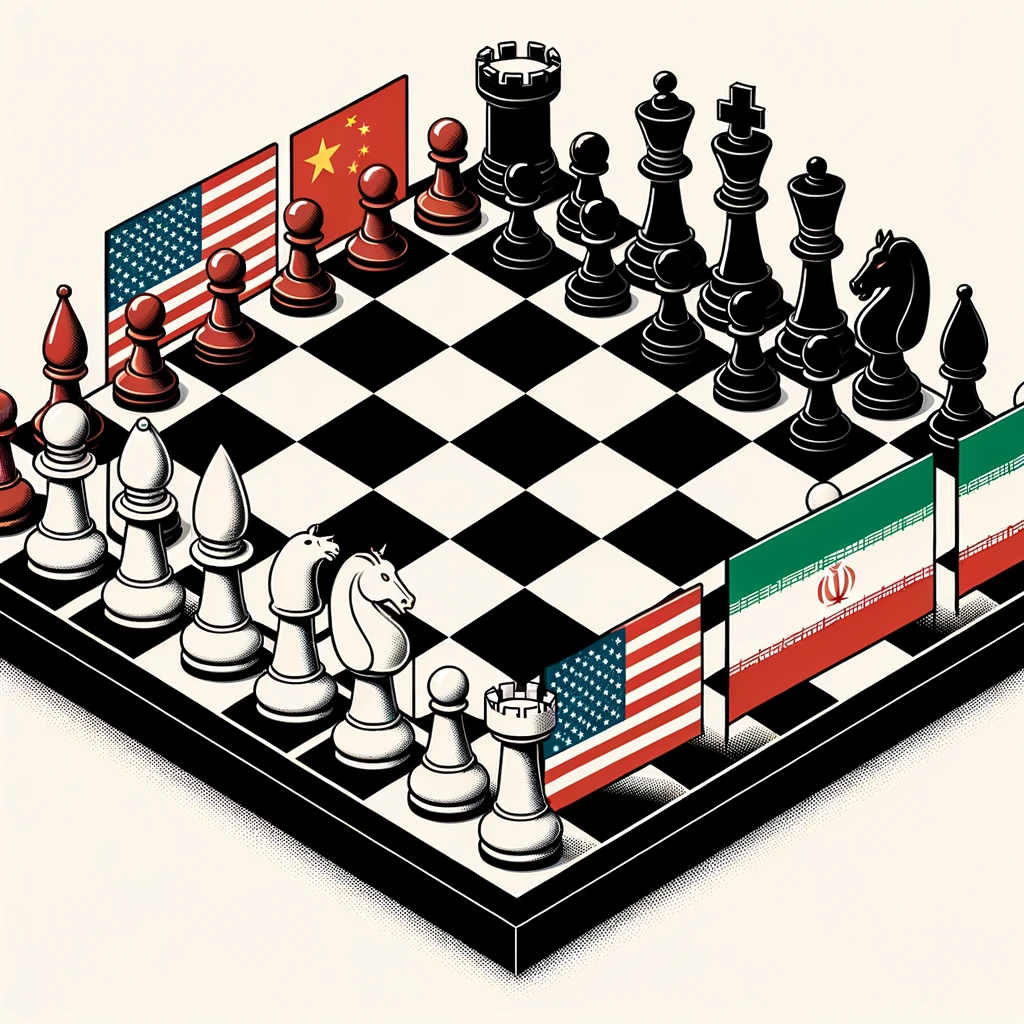China and Russia are working overtime to undermine US influence around the world and overtake the world’s sole superpower. Their tactics include China’s Belt and Road Initiative and Russia’s developing relationship with Iran and North Korea. Beijing has also become closer to Iran via a recently-signed 25-year deal.
But that’s not the only thing happening. China has been watching Russia’s war in Ukraine closely to see whether the West will be able to defeat Russia in Ukraine and whether a new world order may be emerging. Towards that end, China and Russia have been happy to see Middle East countries moving toward the SCO, (the Shanghai Cooperation organization), BRICS and other organizations that bring Russia and China together.
China was also involved in brokering an Iran-Saudi reconciliation earlier this year. The surprising reconciliation between Iran and Saudi Arabia in March marked a momentous turning point in a long-standing feud that had wreaked havoc across the Middle East. For years, the bitter rivalry between these two regional powerhouses had contributed to the destabilization of several countries in the region, including Iraq, Syria, Lebanon, Yemen, and Bahrain.
At the heart of this unexpected détente lay a complex web of geopolitical considerations. One of the pivotal factors driving this policy shift was the deteriorating relations of both Iran and Saudi Arabia with the United States. The strain in their relationships with Washington had profound implications on their respective foreign policies.
In Tehran, Iran’s Supreme Leader, Ayatollah Ali Khamenei, sought to break free from the political and economic isolation imposed by the United States. This isolation had been exacerbated by the U.S. withdrawal from the landmark nuclear deal designed to curb Tehran’s nuclear program. Iranian officials viewed the prospect of renewed relations with Saudi Arabia as a strategic means to extricate themselves from this isolationist quagmire.
From a broader perspective, the reconciliation effort represented an intricate dance of regional power dynamics. China’s role as a mediator added another layer of complexity to the situation, showcasing its growing influence in the Middle East and its capacity to reshape diplomatic landscapes. As Beijing facilitated dialogue between Iran and Saudi Arabia, it not only demonstrated its diplomatic prowess but also underscored its role as a key player in regional politics.
The newfound understanding between Iran and Saudi Arabia held the potential to ripple across the Middle East, affecting the balance of power, regional conflicts, and the broader geopolitical landscape. It signaled a willingness on both sides to prioritize stability and cooperation over long-standing animosities, with China serving as a catalyst for this transformation.
The remarkable reconciliation between Iran and Saudi Arabia, orchestrated by China, transcended the immediate diplomatic gains. It symbolized a strategic reevaluation driven by shifting global dynamics, with Iran seeking to overcome its isolation and China asserting its presence as a diplomatic heavyweight in the ever-evolving Middle Eastern theater. The implications of this détente extended far beyond bilateral relations, shaping the trajectory of regional politics and international diplomacy.
For this reason, Russia and China’s intentions to completely transform the global order to their benefit warrants a strong and necessary reaction by the US. Some experts are warning this could translate into a military confrontation.
According to a Reuters report, “The United States must prepare for possible simultaneous wars with Russia and China by expanding its conventional forces, strengthening alliances and enhancing its nuclear weapons modernization program, a congressionally appointed bipartisan panel said on Thursday.
The report from the Strategic Posture Commission comes amid tensions with China over Taiwan and other issues and worsening frictions with Russia over its invasion of Ukraine.
If China perceives Russia as winning its war in Ukraine, it will conclude that it can attack Taiwan and expect a weak US response. This, in turn, may embolden North Korea or Iran to make their own moves against the US as well.
With so much at stake, America must show resolve and strengthen its military deterrence so that China and Russia do not succeed in diminishing US influence.
China and Russia aim to weaken US global influence
